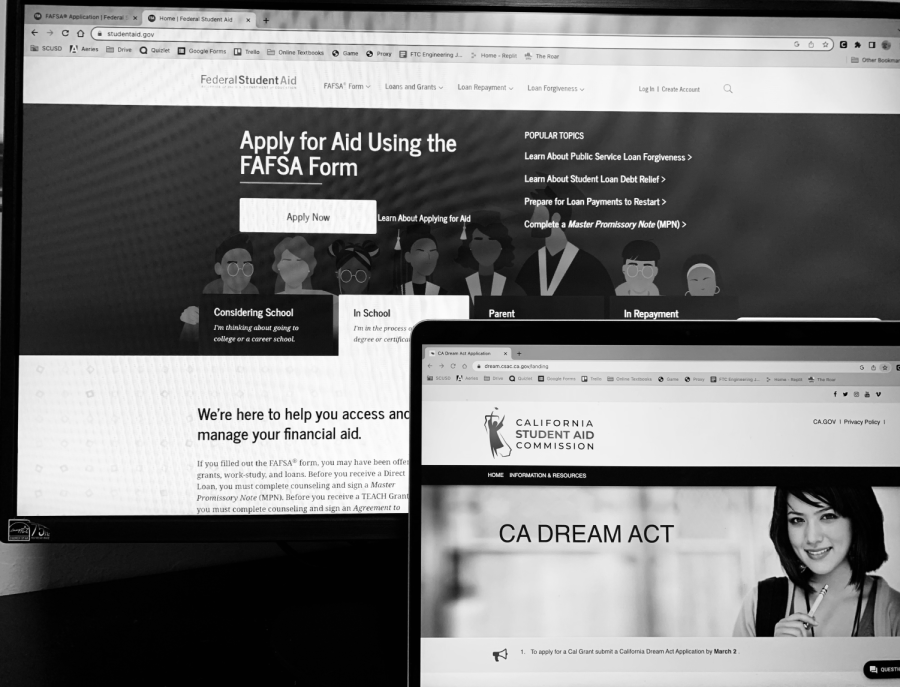CAMPUS: New California law mandates seniors to fill out financial aid
For many students, earning a degree after high school is dependent upon college tuition, and despite financial aid applications, such as the Free Application for Federal Student Aid and the California Dream Act that have been helping students afford college, the increasing college tuition is still hindering many students’ education.
In order to help get more students into college, Assembly Bill 469 is a new law that requires all California seniors to apply for the FAFSA, the CADA or opt out of them.
Prior to the bill, many individuals had not been notified of the financial aid opportunities. Vice Principal Tony Lam shared statistics explaining that in past years, around 50% of SCHS seniors applied for financial aid. Along with Lam, counselor Katy Weeks explained their goal is to improve those numbers.
“We’re going to work hard to try to get 100% (of seniors to apply). That’s our goal,” Weeks said.
Lam finds that due to the low number of students applying for financial aid, there is often money remaining that should have instead been distributed to students.
“In some cases people who think that they don’t qualify, may qualify for some of that money,” Lam said.
Lam explained how counselors and the College and Career Center are currently encouraging students to apply for financial aid by adding students who complete either the FAFSA or CADA into a raffle to win free tickets to the school’s Winter Ball and Prom, among other prizes.
“That’s our push, and hopefully, students will do their (part) and submit the application and become eligible for a free Winter Ball ticket,” Lam said.
Senior Avaneesh Aruva finds that the newly-mandated application process holds guaranteed financial benefits for students who are eligible.
“Making it required forces everyone to at least take a shot and give people who thought they weren’t going to get any money at all, some money,” Aruva said.
Senior Kyla Tadina added that for some, the FAFSA is the deciding factor in their postsecondary education. Tadina shared a story about a relative who got accepted into a four-year college but was unable to attend due to high expenses.
“I was like, ‘Why didn’t you apply for the FAFSA?’ and she was like, ‘’Cause I didn’t know about it,’” Tadina said. “It’s definitely a good opportunity, especially for those who don’t want to make such a big financial commitment.”
Despite the overlapping time frames of the FAFSA application and college application deadlines, many students agree that FAFSA is much less of a toll. Senior Sebastian McMahon found that the FAFSA was much easier than filling out another college-related application called the CSS Profile.
“In comparison, the CSS Profile took three times as long as the FAFSA, mostly because the website was slow and crashes every ten minutes, making me have to restart multiple times,” McMahon said. “The FAFSA website was fast and reliable.”
Similar to McMahon, many seniors have found their financial aid applications to be significantly more convenient than their college applications.
“With the FAFSA, it’s just a bunch of filling in your information and submitting it. There’s no writing supplemental,” Tadina said.
Many students and faculty members believe Assembly Bill 469 is a step in the right direction to providing all students the possibility of higher education regardless of their family’s income.
“I think it’s a really good opportunity to set yourself up for the future,” Tadina said.


